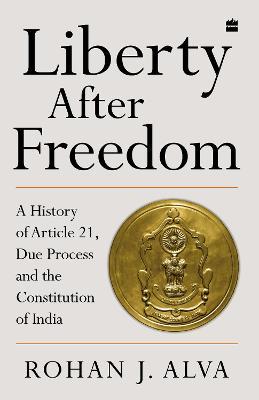Liberty after freedom
Availability :
In Stock
₹ 467.22
M.R.P.:₹ 599
You
Save: ₹131.78 (22.00% OFF)
(Inclusive
of all taxes)
Delivery:
₹ 0.00 Delivery charge
Author:
Alva, Rohan J.
Publisher:
HarperCollins India
Edition:
FIRST
ISBN-13:
9789354893056
Publishing Year:
February 28, 2021
No. of Pages:
312
Weight:
300 gr
Language:
English
Book Binding:
Hardcover











